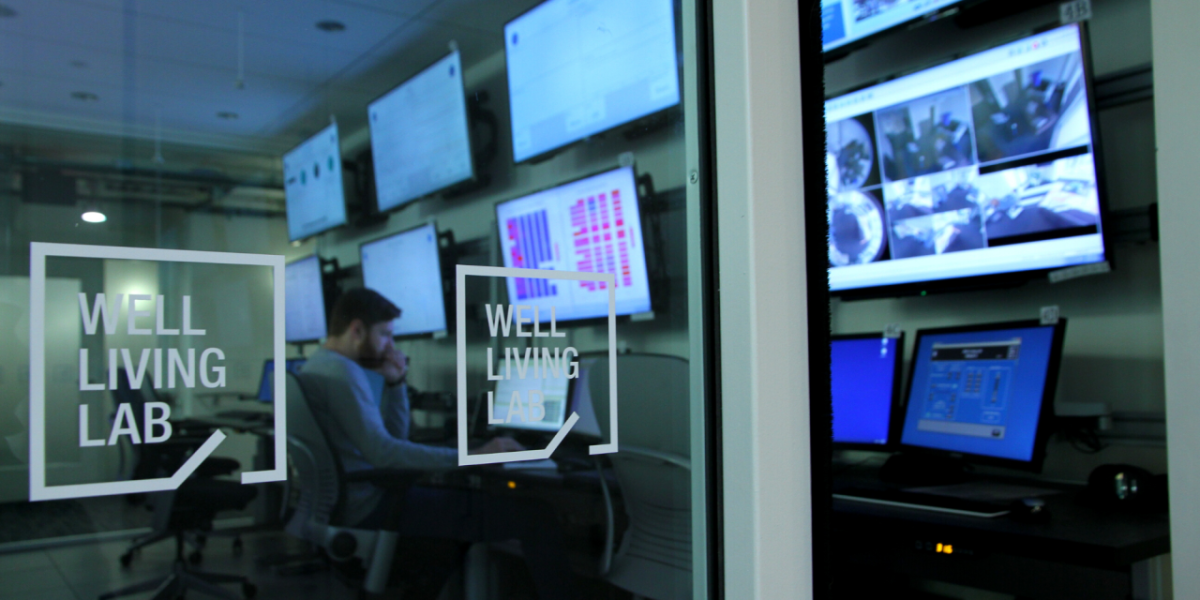Built Environment Research: How We Study the Great Indoors
We spend 90% of our time indoors. It is important to understand how the environments around us affect our health, productivity and overall well-being.

Research and the Indoor Environment
Our physical and social environments—and the behaviors they promote—have a profound impact on our health and well-being. The ways in which we interact with the spaces in our lives can help improve our health—or work against it. At Delos, for the past 10 years, we have dedicated our focus to understanding how health and well-being can be improved in the spaces where we live, work, learn and play. To do that, we rely on scientific research, collaborations with leading institutions and subject matter experts, and a unique approach to evaluating products and technologies designed for improving the health of indoor environments.
The research that we do falls broadly into one of three categories: scientific research, product innovation and evaluation, and translation of research with the goal of popularizing it and educating the general public.
Scientific Research and the Well Living Lab
The goal of our scientific research is to advance the understanding of how indoor environments impact human health and well-being, and discover new frontiers in the interdisciplinary field of human-building interaction.
The Well Living Lab, founded in 2016 as a collaboration between Delos and Mayo Clinic, brings together building science and health science to conduct academic research on optimizing indoor environments to promote human health and well-being. To date, it has completed 21 studies and published 18 peer-reviewed publications in scientific journals. The peer-review process subjects an author's research to the scrutiny of others who are experts in the same field (peers) and is considered necessary to ensure academic scientific quality.
Read more by clicking here.

